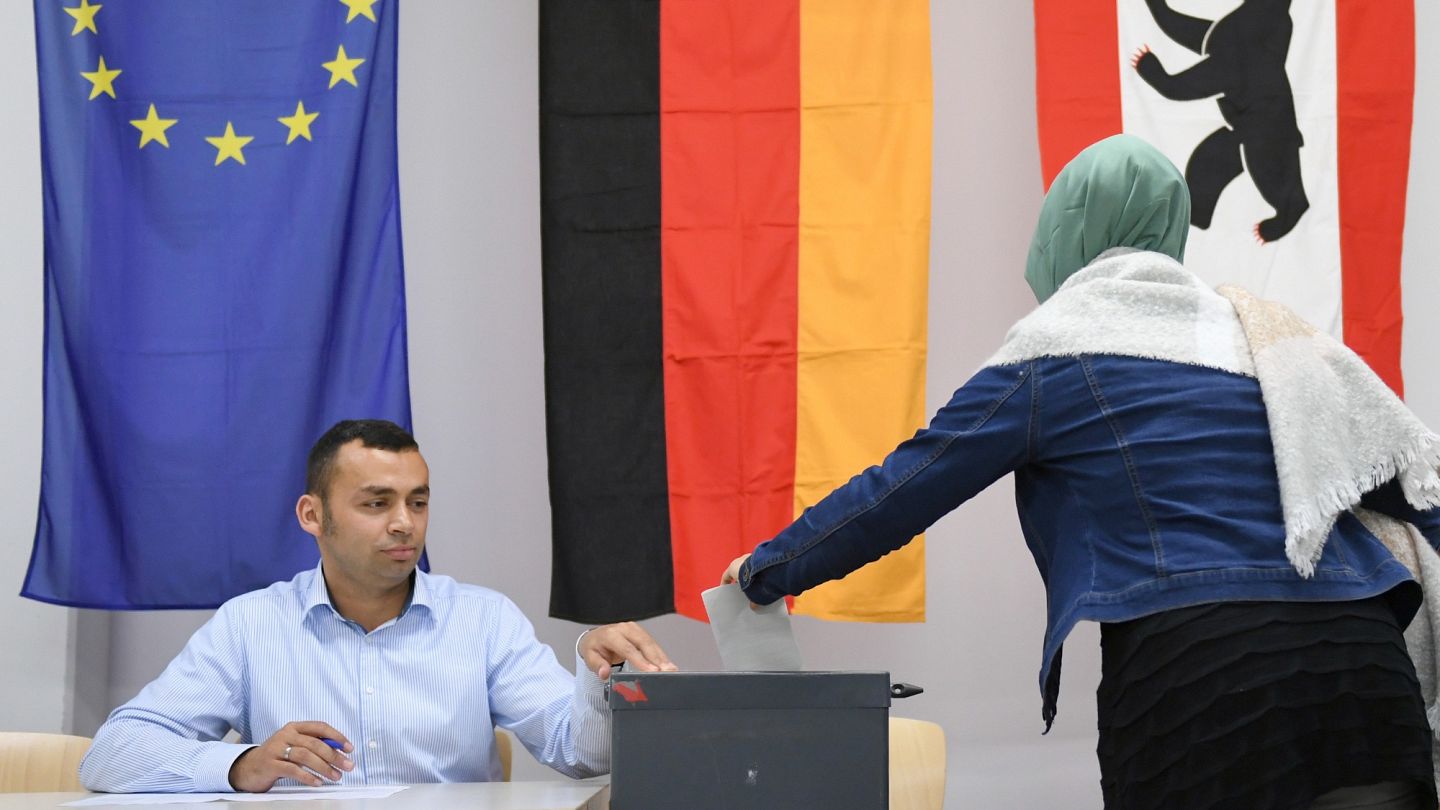German Greens push to abolish neutrality act, allowing headscarves for civil servants
Greens in Berlin push to abolish the neutrality law, claiming it discriminates against Muslim women wearing headscarves and hampers their careers in public service.
The Greens party's group in the Berlin House of Representatives has made a motion calling for the abolition of the so-called Neutrality Act, a law that prohibits civil servants from visibly wearing or displaying religious symbols while at work.The 2005 law, which affects teachers, police and judicial officers, among others, has already been brought to court several times. Since then, there have been further complaints, particularly in connection with the wearing of headscarves by Muslim civil servants. The law also bans Jewish men from wearing a yarmulka, yet allows the wearing of crucifixes.Supporters of the law, however, argue that the act does not target a particular group and is solely concerned with separating public office from religion or ideology and keeping it secular. However, the Berlin Greens parliamentary group says that the neutrality law "hinders the access of women who have chosen to wear a headscarf to professions in the public service, and in some cases, makes this impossible.""Highly qualified women are not allowed to practise their profession because they wear a headscarf. That is a problem," Green Party politician Tuba Bozkurt told Tagesspiegel newspaper, calling it a "de facto professional ban".The Greens believe their initiative would enable women to work as civil servants in the administration of justice, the prison system and the police, even if they wear a headscarf.The centre-right CDU and centre-left SPD parties, which have agreed on a ruling coalition after the federal elections in February, are not expected to want to change the existing law.The current coalition agreement, which still needs to be agreed upon by the two parties, states the Neutrality Act is to be reworked "in a court-proof manner to reflect the current case law of the Federal Constitutional Court."How did the Neutrality Act come to be? In 2015, the German Federal Constitutional Court issued a landmark judgment, ruling that a general ban on headscarves would not be compatible with the constitution, as it would disproportionately restrict fundamental rights. The ruling further stated that such a ban could be justified only if a headscarf posed a threat to school peace or state neutrality.The Berlin education administration only relented in 2023, years after the judgment. Previously, the state authorities had to pay compensation to a teacher of Muslim faith in 2018 because she was not hired due to her wearing a headscarf. The teacher received around €5,200 in compensation under the General Equal Treatment Act due to what the labour court deemed to be religious discrimination.As a result, the Berlin Senate Administration issued a letter to all schools stating that, in the future, it would cease the "literal application of the Neutrality Act" and follow the Federal Constitutional Court's ruling. However, what constitutes a threat to school peace remains undefined.The Neutrality Act is based on another Federal Constitutional Court ruling in 2003, when Fereshta Ludin brought the case to court, stating she wanted to work as a teacher in Baden-Württemberg after completing her studies, but was prohibited from practising her profession because of her headscarf.The Federal Constitutional Court ruled that the decision of the competent authority and the rulings of the lower courts violated the teacher's fundamental rights — in particular her freedom of religion and the right to equal access to public office.Furthermore, the court found that there was no legal basis for such a ban in Baden-Württemberg at the time. However, the court confirmed that wearing a headscarf could come into conflict with state neutrality. According to German law, it is up to the individual federal states to decide whether teachers are allowed to wear a headscarf in schools. As a result, Berlin and seven other federal states introduced the Neutrality Act.


